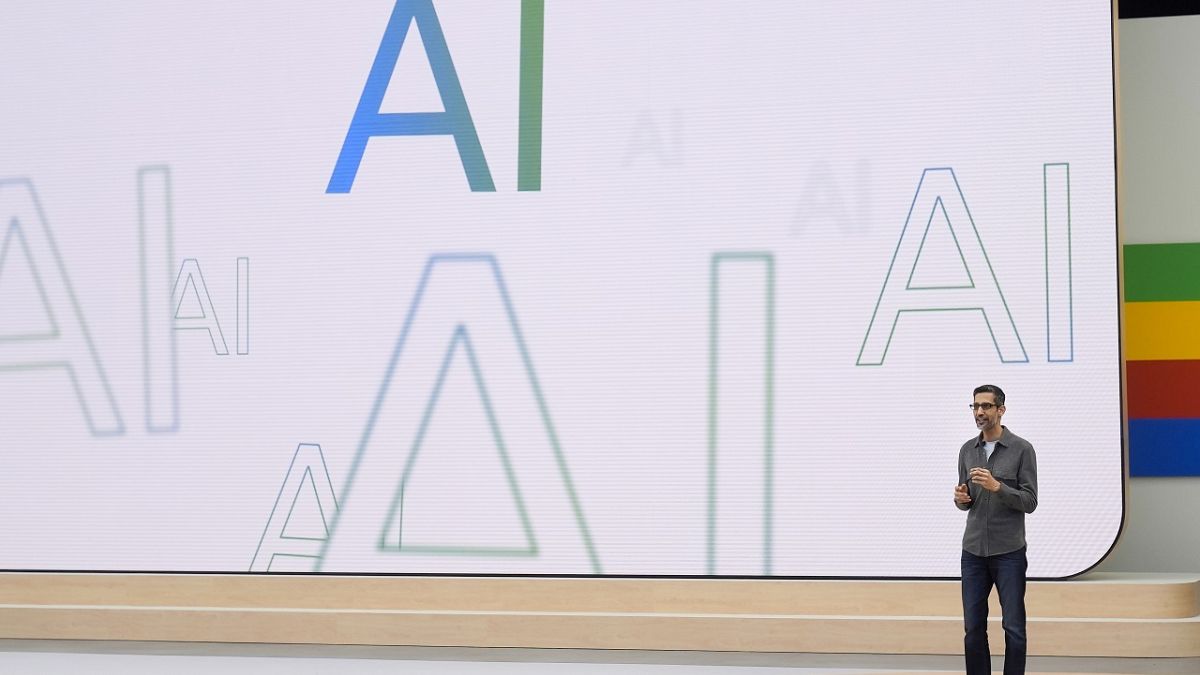A week before the new rules on general purpose artificial intelligence (GPAI) enter into force – affecting tools such as ChatGPT and Gemini – a clearer picture is emerging on where companies stand when it comes to signing up to the EU’s voluntary Code of Practice on GPAI.
US Big Tech giant Meta said last week that it will not sign, having slammed the rules for stifling innovation.
The Code, which the European Commission released last week, is a voluntary set of rules that touches on transparency, copyright, and safety and security issues, aiming to help providers of GPAI models comply with the AI Act.
Those providers who sign up are expected to be compliant with the AI Act and can anticipate more legal certainty, others will face more inspections.
Here’s who’s in and who’s out.
Those that will sign
US AI provider Anthropic, which developed AI assistant Claude as a competitor to OpenAI’s ChatGPT and Google’s Gemini, is the latest company that said it intends to sign the Code.
“We believe the Code advances the principles of transparency, safety and accountability—values that have long been championed by Anthropic for frontier AI development,” the company said in a statement.
“If thoughtfully implemented, the EU AI Act and Code will enable Europe to harness the most significant technology of our time to power innovation and competitiveness,” the statement added.
OpenAI said earlier last week that it will sign up too, claiming that Europe should now “use this moment to empower [its] innovators to innovate and builders to build for Europe’s future.”
The drafting process of the Code, which began last September after the Commission selected a group of experts, was heavily criticised, mainly by rightsholders who feared violations of copyright law would increase, while US tech giants claimed the rules stifle innovation.
Microsoft President Brad Smith told Reuters last week that his company will likely sign too. Smith said earlier this year that Microsoft wants to be “a voice of reason” as geopolitical tensions rise.
Those that will not sign
US tech giant Meta was the first, and so far remains the only company to say it will not sign the Code. Chief Global Affairs Officer Joel Kaplan said in a statement last Friday that “Europe is heading down the wrong path on AI.”
After “carefully reviewing” the Code, Meta will not sign because the document “introduces a number of legal uncertainties for model developers, as well as measures which go far beyond the scope of the AI Act,” Kaplan said.
Gry Hasselbalch, a scholar working on data and AI ethics and contributor to the EU’s AI ethics guidelines, told Euronews that the Code did not bring real change on how companies can implement general purpose AI in the EU.
“The companies, like Meta, that decide not to sign the code will still need to comply with the AI Act. Signing the code is therefore just a formality. They would still have to read it and follow it to understand when an AI system is considered a general purpose AI system and what transparency, copyright and security means in the AI Act,” Hasselbalch said.
She added that the AI Act itself – rules that regulate AI systems and tools according to the risk they pose to society – “has become a token in a geo-political battle.”
“The law was developed in a carefully designed and performed democratic process to create legal certainty for AI developers and adopters in the EU. In fact, most AI systems can be developed and used subject to existing legislation without additional legal obligations of the AI Act,” she said.
Meta will still need to be compliant with the AI Act’s obligations that will start applying on 2 August.
Other Big Tech companies, including Amazon, Google, did not want to comment yet on whether they will sign.
Providers that already have a GPAI model on the market will have to sign before 1 August, others can sign up at a later time, the Commission said. On that same day, the EU executive will publish a list of signatories.
The Code requires approval by EU member states, which are represented in a subgroup of the AI Board, as well as by the Commission’s own AI Office.

